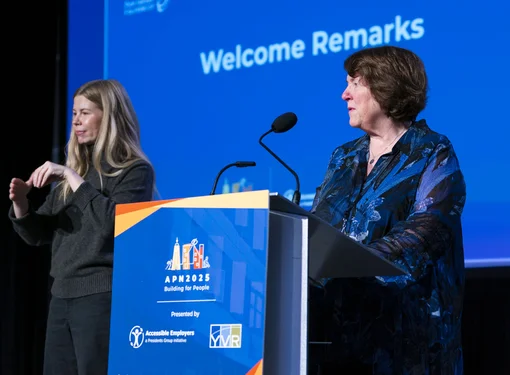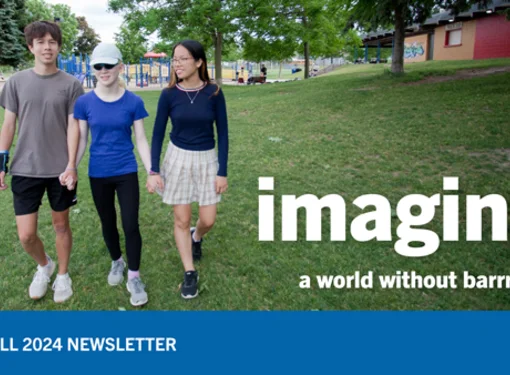Changing Attitudes - Top 10 Tips Sheet
To help our supporters create more positive and meaningful connections with people with disabilities, we’ve put together a list of our top 10 tips on how to interact and engage with those with disabilities.
- Use "people first" language" For example, say “John is a person with a disability” rather than “John is disabled”. This kind of phrasing puts the person, and not their disability, first.
- Feel free to use common phrases such as “See you later”, “Great to hear from you”, or “Walk with me” with people with disabilities. These are a natural part of everyday conversation and are not offensive.
- Don't be afraid to offer help if you see someone with a disability struggling. If they say yes, ask how. If they say no, don’t insist or be offended.
- Think about venue accessibility when planning a party or event Call ahead to ensure there is an accessible entrance, washroom, make sure that tables are at chair height (not bar height) and that there is enough space between tables to accommodate a walker, scooter or wheelchair.
- Always speak directly to the person with the disability. Address them personally and not their friend, assistant or interpreter.
- Use and maintain verbal communication when speaking to someone with vision loss. Introduce yourself, ask the person’s name and then use it to get their attention. If you need to leave the conversation, verbally indicate you are doing so and do so again when you have returned.
- Ask if you're unsure about someone's level of vision. Not everyone with vision loss is completely blind.
- Don't turn your face away or cover your face or mouth when interacting with those who are deaf or hard of hearing. This prevents them from reading your lips or seeing your facial expressions.
- Respect the personal space of wheelchair users. The wheelchair is part of their personal space so avoid leaning on it or interfering with the free movement of their wheelchair.
- Know that it's okay to make a mistake. If you feel you said or did something to offend a person with a disability; simply acknowledge it with an apology.
Over the next few months, the Rick Hansen team will be reaching out to Canadians with new surveys and questionnaires to gain a better understanding on how disabilities impact you, your loved ones, and your friends and co-workers. You can be a part of this ongoing project! To take part, please provide your email address by clicking here and you’ll receive occasional emails that include survey questions, news on people with disabilities, and news about the work of Rick Hansen and his Foundation team. You can unsubscribe at any time.
If you want to help people with disabilities reach their full potential, you can support the Rick Hansen Foundation by clicking our Donate Now button below.
Many thanks to the Rick Hansen Foundation Accessibility Team for their assistance in creating this top 10 tips sheet.







